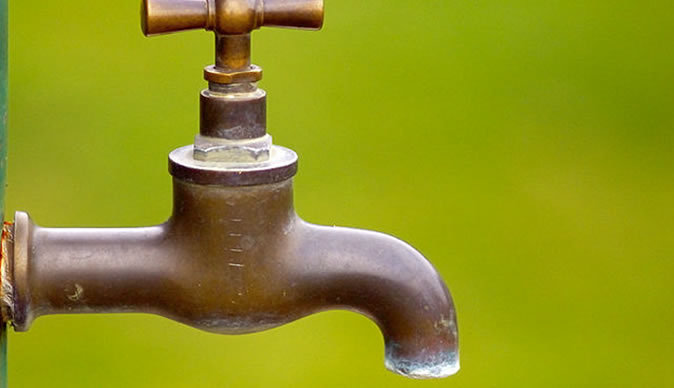
RESIDENTS of Garikai/Hlalani Kuhle in Gwanda have demanded the immediate provision of running water and sewer reticulation systems, saying they remain exposed to health risks almost a decade since the government built the houses.
Albert Ncube Own Correspondent
In 2005, the government built over 200 houses in Gwanda town following Operation Murambatsvina, a slum clearance exercise, which left about 700 000 people displaced after their homes were destroyed in all major towns and cities.
Speaking at the belated commemorations of World Habitat Day held under the theme “Voices From Slums” Hlalani Kuhle Residents’ Association chairman, Mlungiselwa Nkomo told Provincial Affairs minister Abedinico Ncube and Gwanda mayor Knowledge Ndlovu that the biggest challenge being faced by residents was the non-availability of running water and a sewer reticulation system.
“The biggest problem we are facing is the non-availability of water and a sewer systems. We are using nearby hills to relieve ourselves and I want to tell you that if you need to visit the toilet here at Garikai go straight to the bush, because we do not have the proper facilities,” Nkomo said to a round of applause from Hlalani Kuhle residents.
“We have waited for these services for a long time now and all we want is that as we finish the programme, we all go straight and start digging for the laying of water and sewer pipes.”
Lindokuhle Moyo said many women in the township faced numerous problems due to the unavailability of the services.
“As women we are the ones that suffer a lot as we have to prepare food and make sure the children bath before they go to school,” she said.
- Chamisa under fire over US$120K donation
- Mavhunga puts DeMbare into Chibuku quarterfinals
- Pension funds bet on Cabora Bassa oilfields
- Councils defy govt fire tender directive
Keep Reading
“It is unhygienic that, as women, we do not have running water.
“We have since lost our dignity as we have to squat in the bush each time we relieve ourselves and there is no privacy.”
In response, the mayor said the local authority was working with World Vision and the United Nations Children’s Fund (Unicef) to provide the services to people of Hlalani Kuhle and promised that by next year the problem would have been rectified.
Delegates witnessed the need for urgent provision of services when residents started to scramble for bottled water as the programme came to an end. Beitbridge acting town secretary Simon Muleya said residents of Hlalani Kuhle in the border town had taken it upon themselves to raise funds for the laying of water and sewer pipe as most local authorities faced financial challenges.
“Where I come from residents have come forward and are contributing daily towards the purchase of pipes. They have divided themselves into groups and are digging trenches,” he said.
The non-availability of water and sewer services at Hlalani Kuhle townships in the province are posing a health risk with experts fearing an outbreak of water-borne diseases as the rainy season beckons.
Ncube, who was guest of honour, said rural-to-urban migration had seen the increase in slum dwellings in towns and cities and said the government would provide land for the building of houses.
He said the slums were a breeding place for diseases such as HIV and AIDS, cholera and in some places Ebola. More than 1,2 million Zimbabweans are in need of houses with 35 000 of those from Matabeleland South province.
World Habitat Day is celebrated annually on the first Monday of October to reflect on the state of towns and cities, and on the basic right of all to adequate shelter.










